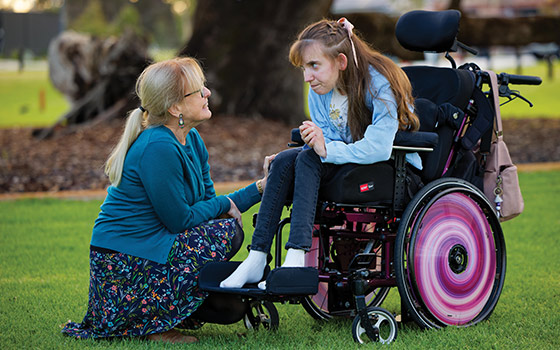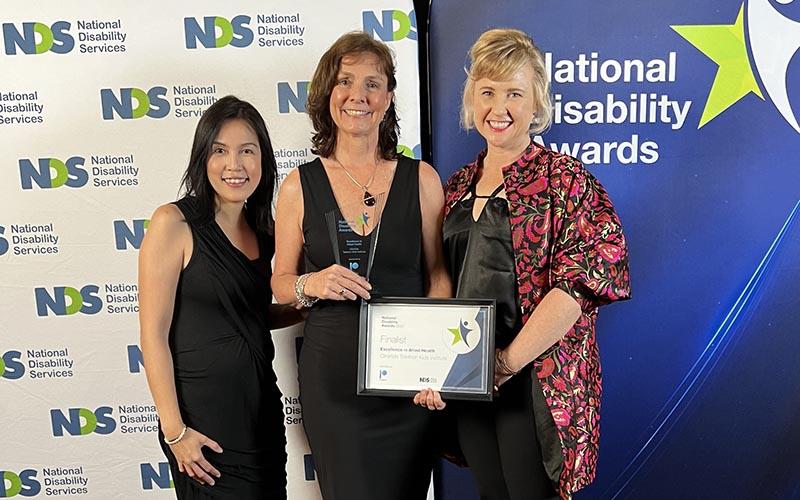Search

The Quality of Life Inventory - Disability

News & Events
The Kids Research Institute Australia’s CliniKids wins national disability awardCliniKids has won the Excellence in Allied Health category at the inaugural National Disability Awards, announced in Melbourne tonight.

News & Events
The Kids researchers named as finalists in 2023 Premier’s Science AwardsFive The Kids Research Institute Australia researchers working across diverse and highly impactful areas of child health research have been named as finalists for the 2023 Premier’s Science Awards.

News & Events
Autism Researcher a Finalist for Western Australian of the YearProfessor Andrew Whitehouse has been named a finalist in the 2023 Western Australian of the Year Awards for his work in transforming clinical support for autistic children in Australia.
Research
Intact spontaneous emotional expressivity to non-facial but not facial stimuli in schizophrenia: An electromyographic studyThe results indicate that schizophrenia is marked by a disruption in rapid facial responding to facial expressions, but intact responding to non-facial emotional stimuli
Research
The prevalence of mental health disorders and symptoms in children and adolescents with cerebral palsy: a systematic review and meta-analysisMental health conditions and problems are often reported in children and adolescents with CP. A systematic review was undertaken to describe their prevalence.
Research
Fetal Testosterone, Socio-Emotional Engagement and Language DevelopmentThe present study investigated the relations among fetal testosterone, child socio-emotional engagement and language development...
Research
Brief Report: Further Evidence for a Link Between Inner Speech Limitations and Executive Function in High-Functioning Children with AutismThis study investigated the involvement of inner speech limitations in the executive dysfunction associated with autism spectrum disorders (ASDs).
Research
Latent Class Analysis of Neurodevelopmental Deficit After Exposure to Anesthesia in Early ChildhoodSome studies suggest an association between early exposure to anesthesia, surgery and long term developmental deficit, clinical phenotype of children is unknown
Research
Acoustic Properties of Cries in 12-Month Old Infants at High-Risk of Autism Spectrum DisorderThere is preliminary evidence that infant siblings of children with Autism Spectrum Disorder have an atypical pattern of crying
